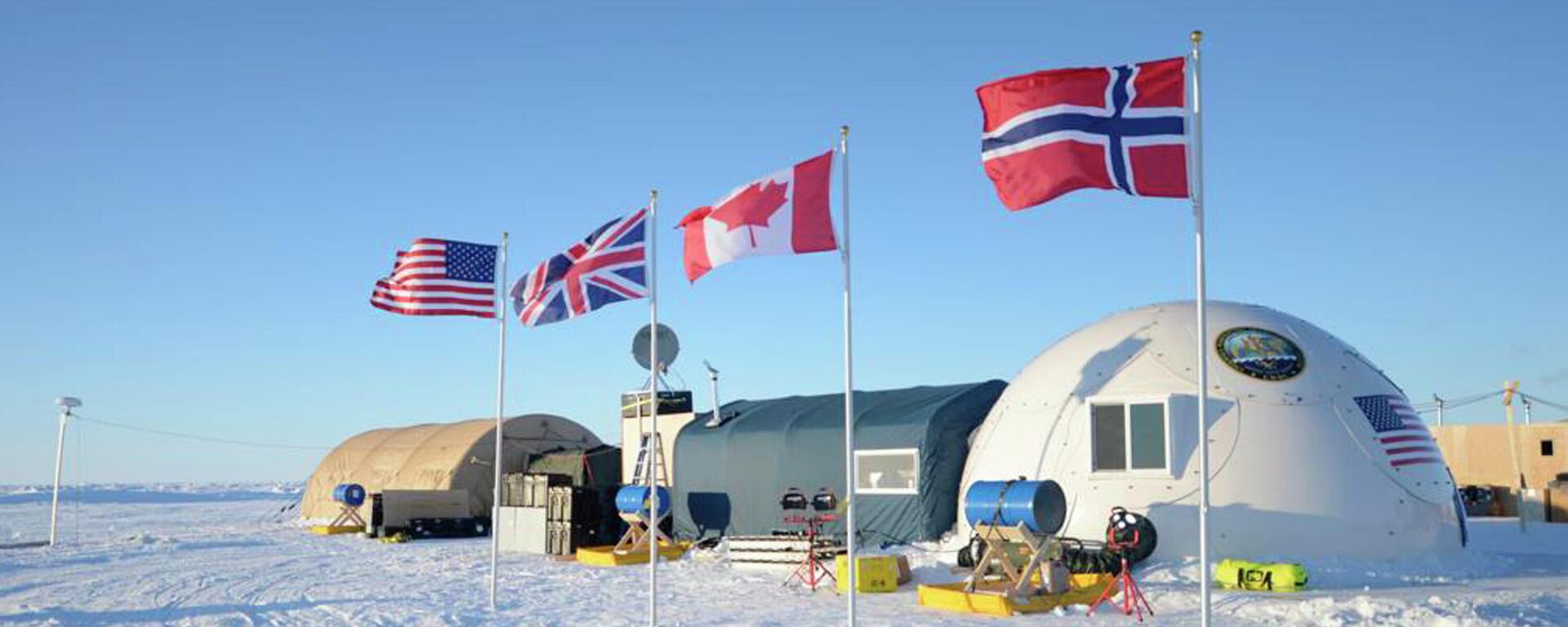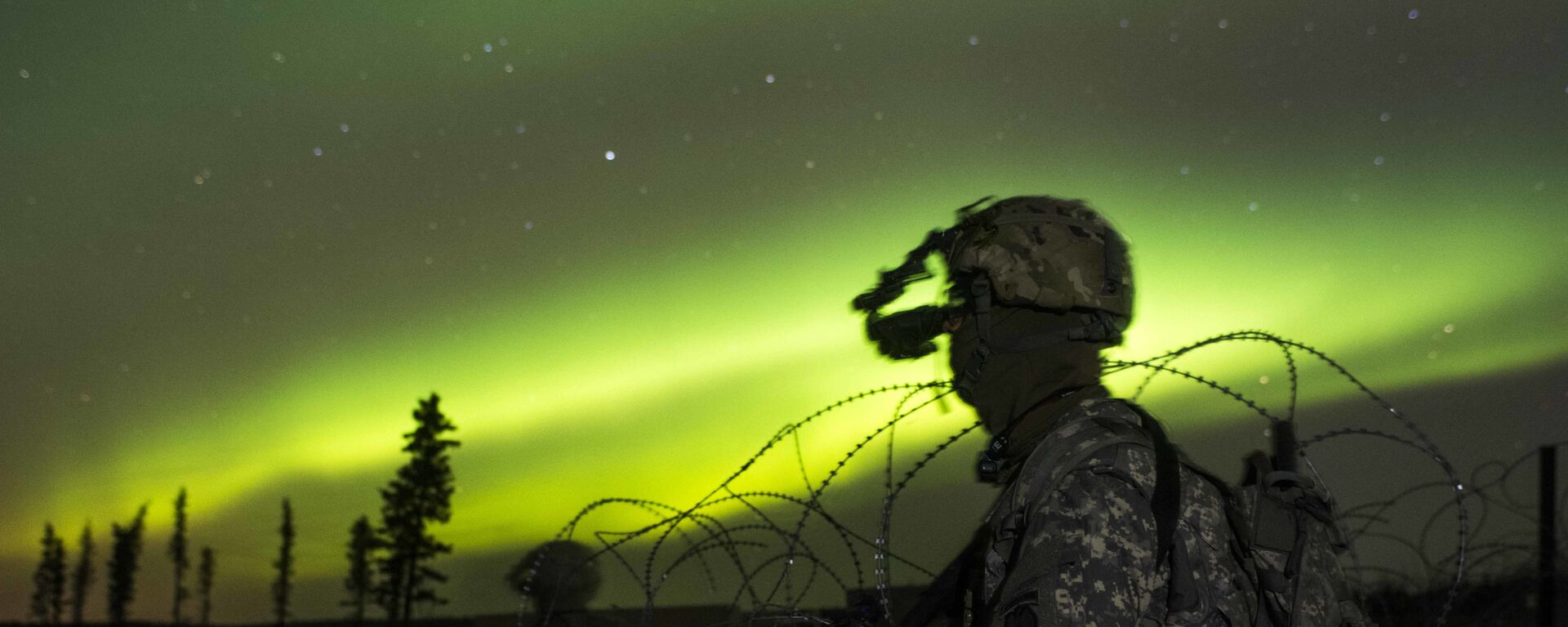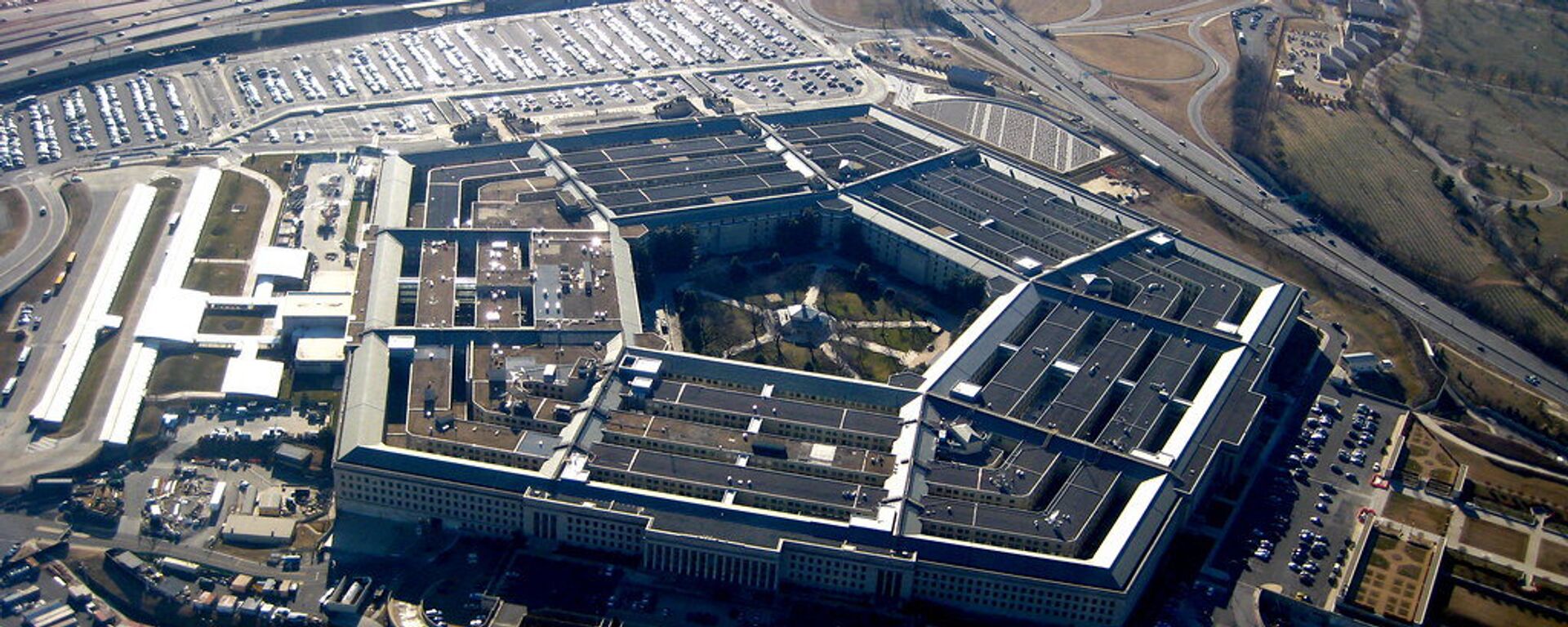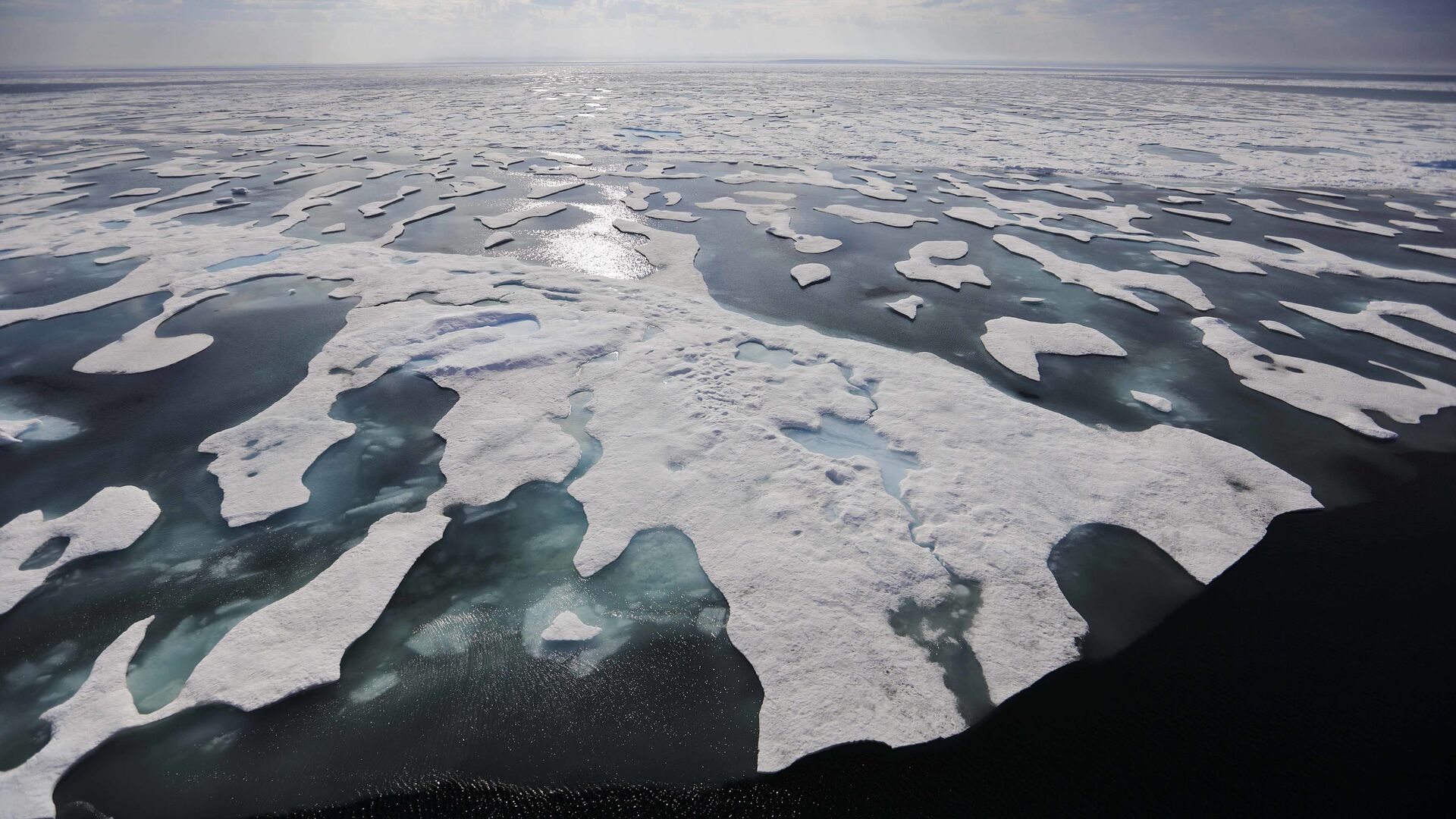https://sputnikglobe.com/20231225/is-us-trying-to-catch-up-to-russia--china-in-arctic-race--1115807003.html
Is US Trying to Catch Up to Russia & China in Arctic Race?
Is US Trying to Catch Up to Russia & China in Arctic Race?
Sputnik International
The US has unilaterally defined the outer limits of its continental shelves, causing Moscow to raise concerns and urge Washington to adhere to international norms. Will this spat further fire up the already simmering tensions?
2023-12-25T18:06+0000
2023-12-25T18:06+0000
2023-12-25T18:06+0000
us
arctic
analysis
opinion
joe biden
michael maloof
dr mamdouh salameh
russia
national oceanic and atmospheric administration (noaa)
the united nations (un)
https://cdn1.img.sputnikglobe.com/img/106788/63/1067886364_0:296:6001:3671_1920x0_80_0_0_3e6e459b64a84d403c0c74d302b94b91.jpg
On Tuesday, the US State Department released the geographic coordinates defining the outer limits of the US continental shelf, known as the extended continental shelf (ECS). These limits cover an area of approximately one million square kilometers, distributed among seven regions.Russia, whose interests overlap with those of the US in the Arctic, expressed its opposition to Washington's move, arguing that it violates international law.The Biden administration's rationale behind trying to secure its rights to the seabed, especially in the High North, is understandable, given that about 25% of the world's oil and gas reserves lie at the bottom of the Arctic Ocean, as well as rich deposits of diamonds, gold, platinum, tin, manganese, nickel, and lead.Why the Rush?Washington's decision to cut corners in laying claims to the Arctic seabed in particular could have been triggered by the fact that it's lagging behind Russia when it comes to the exploration of the High North, says Dr. Mamdouh G. Salameh, an international oil economist and a global energy expert.The expert pointed out that Russia is busy with building infrastructure in the High North, including harbors, towns, and shipping routes. Russian energy companies are also laying oil and gas pipelines in the region and transporting its Arctic hydrocarbons to China and the rest of the world through the Northern Sea Routes (NSR)."Russia won the race in the Arctic. It will take the United States years to catch up if ever. Consequently, the US can’t threaten Russia’s achievements in the Arctic," Salameh insisted.At the same time, Washington is up in arms about growing Russo-Chinese cooperation in the Arctic, which was heavily criticized by the Pentagon.Are America's Shelf Claims Null and Void?Russian lawmakers made it clear that the expansion of the United States' own part of the continental shelf in the Arctic is unacceptable and could escalate tensions, as head of the State Duma Committee on the Arctic Nikolai Kharitonov told Sputnik on Sunday."The unilateral expansion of borders in the Arctic is unacceptable and can only lead to increased tension. It is necessary, first of all, to prove the geological identity of these territories, as Russia did," Kharitonov said.The US State Department's December 19 announcement of the extended shelf boundaries mentions the United Nations Convention on the Law of the Sea (UNCLOS). The press release particularly claims that Washington has determined its ECS limits "in accordance with customary international law, as reflected in the relevant provisions of the 1982 United Nations Convention on the Law of the Sea" and "the Scientific and Technical Guidelines of the Commission on the Limits of the Continental Shelf."However, this remark does not provide any legality to Washington's seabed claims since it has neither ratified UNCLOS, nor has it undergone a special procedure as a UNCLOS participant with the assistance of the Commission on the Limits of the Continental Shelf as stipulated by Article 76 of the Convention.The Biden Administration's claims that the National Oceanic and Atmospheric Administration (NOAA) and US Geological Survey (USGS) gathered and analyzed all required data for expanding the US continental shelves raise doubts about Washington's unilateral assertions.Maloof believes that it is unlikely that the US will engage in a comprehensive dialogue with Russia to address their concerns regarding the unilateral actions taken by Washington and potential conflicting interests in the Arctic. This is mainly because the US is still involved in the proxy conflict with Russia in Ukraine, and there is also significant disagreement between Moscow and Washington over US reluctance to support international ceasefire efforts in Gaza.Perhaps, a possible way for Team Biden to soothe new Russo-American tensions is to start playing by the rules, the military expert suggested.
https://sputnikglobe.com/20231225/bypassing-unclos-why-us-extended-continental-shelf-claims-are-tricky-1115807227.html
https://sputnikglobe.com/20231224/russia-lambasts-us-unacceptable-claims-to-arctic-shelf-1115789768.html
https://sputnikglobe.com/20231222/biden-officially-signs-2024-us-defense-authorization-bill-1115757911.html
arctic
russia
Sputnik International
feedback@sputniknews.com
+74956456601
MIA „Rossiya Segodnya“
2023
News
en_EN
Sputnik International
feedback@sputniknews.com
+74956456601
MIA „Rossiya Segodnya“
Sputnik International
feedback@sputniknews.com
+74956456601
MIA „Rossiya Segodnya“
us, arctic, us arctic claims, outer limits of us continental shelves, unclos, russia, china, pentagon, race for arctic region, joe biden, will us join unclos
us, arctic, us arctic claims, outer limits of us continental shelves, unclos, russia, china, pentagon, race for arctic region, joe biden, will us join unclos
Is US Trying to Catch Up to Russia & China in Arctic Race?
The US has unilaterally defined the outer limits of its continental shelves, causing Moscow to raise concerns and urge Washington to adhere to international norms. Will this spat further fire up the already simmering tensions?
On Tuesday, the US State Department released the geographic coordinates defining the outer limits of the US continental shelf, known as the extended continental shelf (ECS). These limits cover an area of approximately one million square kilometers, distributed among seven regions.
"The US would have considerable interest for mineral rights, for oil and gas after we get past this anomaly in politics in America called the Biden administration," Michael Maloof, former senior security policy analyst in the Office of the Secretary of Defense, told Sputnik. "We'll be able to get back to fossil fuels, which are much cleaner, by the way, than they are purported to be under the Biden administration. The reality is that the continental shelf of the United States extends pretty far out."
Russia, whose interests overlap with those of the US in the Arctic,
expressed its opposition to Washington's move, arguing that it violates international law.
The Biden administration's rationale behind trying
to secure its rights to the seabed, especially in the High North, is understandable, given that about 25% of the world's oil and gas reserves lie at the bottom of the Arctic Ocean, as well as rich deposits of diamonds, gold, platinum, tin, manganese, nickel, and lead.
"That's what's interesting about the seabed," Maloof continued. "You got the oil and gas reserves there in the billions of cubic inches and what have you, cubic feet under there. And these are just estimates. They haven't made a thorough estimate of all the varieties. And then the rare earths: we have rare earths on land rather in the United States, which we haven't developed. So we should start developing those first to become less dependent on other countries. But given the globalist versus populist mindsets that are ideologies that are conflicting right now in the United States, that's going to have to be worked out. Because the Biden administration is truly globalist, it's trying to eliminate borders as we speak."

25 December 2023, 16:25 GMT
Washington's decision to cut corners in laying claims to the Arctic seabed in particular could have been triggered by the fact that it's lagging behind Russia when it comes to the exploration of the High North, says Dr. Mamdouh G. Salameh, an international oil economist and a global energy expert.
"Russia has stolen a huge march on the United States in the race for the resources under the Arctic," Salameh told Sputnik. "President [Vladimir] Putin was astute enough to realize the importance of these resources to pour billions of dollars into exploiting these resources and building the infrastructure to facilitate this operation. Russia’s share of the Arctic accounts for 13% of global oil and gas reserves. If these were added to current Russian oil and gas reserves, Russian oil reserves shoot up to 132 billion barrels and gas reserves to more than 3,000 trillion cubic feet."
The expert pointed out that Russia is busy with building infrastructure in the High North, including harbors, towns, and shipping routes. Russian energy companies are also laying oil and gas pipelines in the region and transporting its Arctic hydrocarbons to China and the rest of the world through the Northern Sea Routes (NSR).
"Russia won the race in the Arctic. It will take the United States years to catch up if ever. Consequently, the US can’t threaten Russia’s achievements in the Arctic," Salameh insisted.
At the same time, Washington is up in arms about growing Russo-Chinese cooperation in the Arctic, which was heavily criticized by the Pentagon.
"China is also very interested in this [exploration of the High North]," Maloof pointed out. "That area is going to really open up, inevitably there's going to be tensions. And we're already seeing Russia in the Arctic laying bases and what have you. And what's intriguing is that Russia has something like 40 or 50 ice cutters, the United States has maybe two. That shows you, just now the United States is beginning to show some interest in the Arctic generally, in addition to wanting to claim the mineral rights. So there's a variety of reasons why the Arctic is going to become the new focus in the near future."

24 December 2023, 18:57 GMT
Are America's Shelf Claims Null and Void?
Russian lawmakers made it clear that the expansion of the United States' own part of the continental shelf in the Arctic is unacceptable and could escalate tensions, as head of the State Duma Committee on the Arctic Nikolai Kharitonov told Sputnik on Sunday.
"The unilateral expansion of borders in the Arctic is unacceptable and can only lead to increased tension. It is necessary, first of all, to prove the geological identity of these territories, as Russia did," Kharitonov said.
The US State Department's December 19
announcement of the extended shelf boundaries mentions
the United Nations Convention on the Law of the Sea (UNCLOS). The press release particularly claims that Washington has determined its ECS limits
"in accordance with customary international law, as reflected in the relevant provisions of the 1982 United Nations Convention on the Law of the Sea" and "
the Scientific and Technical Guidelines of the Commission on the Limits of the Continental Shelf."However, this remark does not provide any legality to Washington's seabed claims since it has neither ratified UNCLOS, nor has it undergone a special procedure as a UNCLOS participant with the assistance of the Commission on the Limits of the Continental Shelf as stipulated by Article 76 of the Convention.
The Biden Administration's claims that the National Oceanic and Atmospheric Administration (NOAA) and US Geological Survey (USGS) gathered and analyzed all required data for expanding the US continental shelves raise doubts about Washington's unilateral assertions.
Maloof believes that it is unlikely that the US will engage in a comprehensive dialogue with Russia to address their concerns regarding the unilateral actions taken by Washington and potential conflicting interests in the Arctic. This is mainly because the US is still involved in the proxy conflict with Russia in Ukraine, and there is also significant disagreement between Moscow and Washington over US reluctance to support international ceasefire efforts in Gaza.
Perhaps, a possible way for Team Biden to soothe new Russo-American tensions is to start playing by the rules, the military expert suggested.
"The Biden administration has stated that it may want to join [UNCLOS]," Maloof suggested. "We'll see what it does in its remaining months in office here during this term. If it gets re-elected, then I think it will be an almost certainty that the US joins the UN Law of the Sea. So, I think there is a dispute mechanism, but I think it really helps when countries have good diplomatic ties to want to sit down and talk. And there are some overlapping jurisdictions. Certainly continental shelves meet and those demarcations are going to have to be worked out. And they have in the past but on a bilateral basis. And then the results are submitted to the UN and to be held by the UN, in effect, registering claims. So claims are submitted by individual countries and other countries, unless there's a dispute, recognize those claims or sit down and talk them out."

22 December 2023, 22:12 GMT





